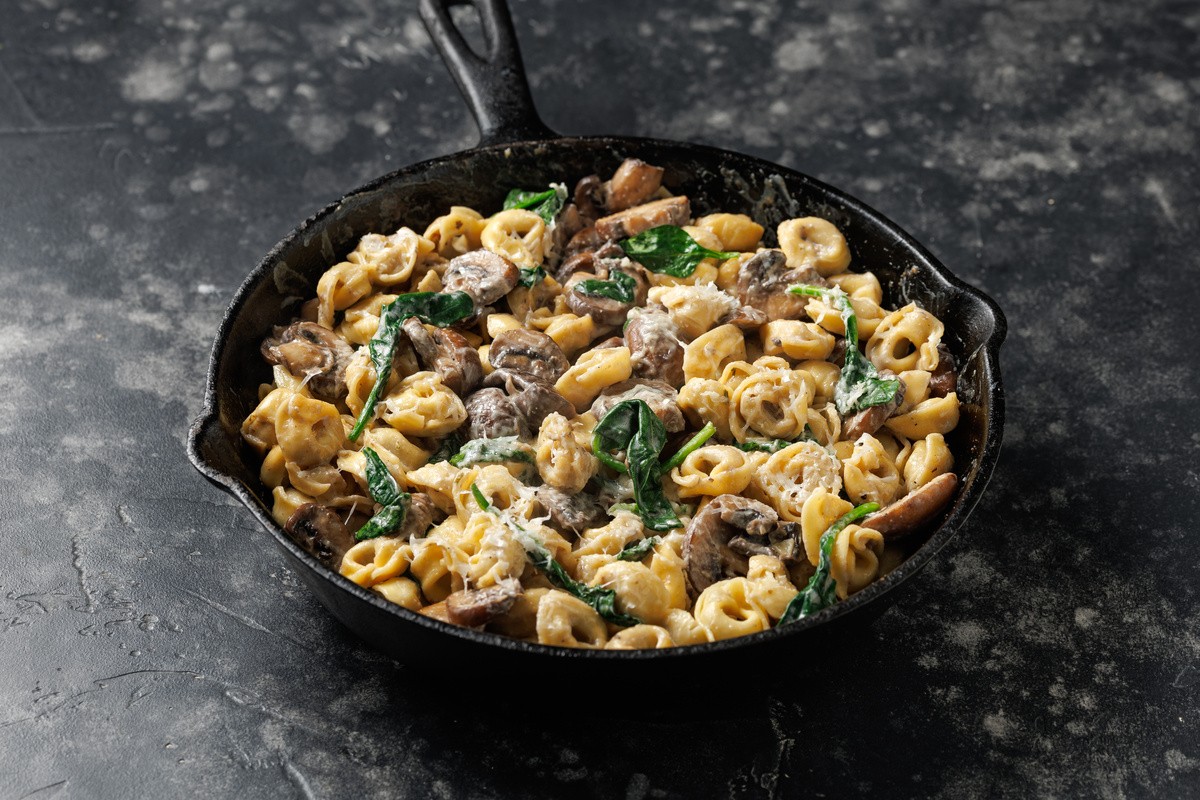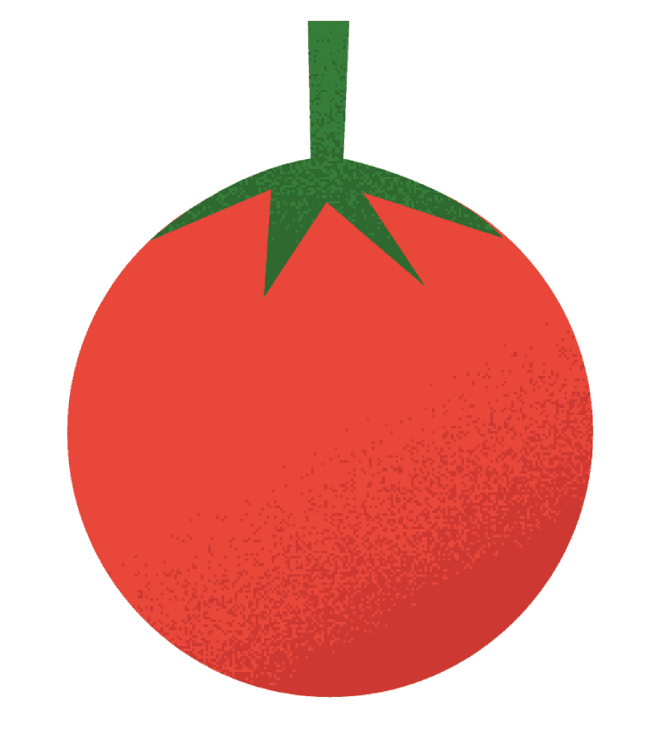Author:
Clinically Reviewed By:
At Berry Street, we’ve seen how many vegetarians are looking for a simple, flexible way to embrace Mediterranean eating without sacrificing their plant-based values. A vegetarian Mediterranean diet meal plan offers the best of both worlds—whole foods, satisfying meals, and serious health benefits.
This article breaks down exactly how to make it work, including a full 7-day plan with balanced meals, a list of must-have pantry staples, and easy meal prep tips to help you stay consistent without spending all day in the kitchen.
From our experience as Registered Dietitians, this way of eating is not only sustainable but also enjoyable, nourishing, and packed with variety.
7-Day Vegetarian Mediterranean Diet Meal Plan
Day 1
Breakfast: Vegan Breakfast Burrito With Black Beans, Spinach, Avocado, And Tofu Scramble
This protein-packed breakfast keeps you energized and full for hours. Tofu offers plant-based protein, while avocado adds healthy fats. To make it, sauté crumbled tofu with turmeric and garlic. Add black beans, wilted spinach, and sliced avocado. Wrap it all in a whole-grain tortilla.

AM Snack: Clementine
Clementines are high in vitamin C and super hydrating. No prep required—just peel and enjoy. It’s the perfect naturally sweet mid-morning refresher.
Lunch: Chopped Salad With Sriracha Tofu And Peanut Dressing
This salad is loaded with veggies, fiber, and flavorful plant protein, making it perfect for Mediterranean lunch meal prep. Cube tofu and pan-sear until golden.
Toss it with chopped greens, peppers, and cucumber. Drizzle with a spicy peanut dressing made from peanut butter, lime juice, sriracha, and a splash of soy sauce.
PM Snack: Fruit Energy Ball
Fruit energy balls are great for a quick boost. They’re rich in fiber and natural sugars. Blend dates, oats, almond butter, and chia seeds. Roll into bite-sized balls and chill before eating.
Dinner: Stuffed Sweet Potato With Hummus Dressing
Sweet potatoes are a fantastic source of beta-carotene and fiber. Bake until soft, then slice and fill with roasted veggies and chickpeas. Drizzle with a simple hummus-lemon dressing for a creamy finish.
Day 2
Breakfast: Apple-Cinnamon Overnight Oats
This is a fiber-rich, make-ahead breakfast that’s both hearty and heart-healthy. Mix rolled oats with unsweetened almond milk, grated apple, cinnamon, and chia seeds. Option to add a scoop of plant based protein powder to make this breakfast more filling. Let it soak overnight in the fridge.
AM Snack: 8 Walnut Halves
Walnuts are a top source of plant-based omega-3s. They support brain and heart health. Just a small handful goes a long way.
Lunch: Chickpea And Quinoa Grain Bowl
Packed with protein and complex carbs, this bowl fuels your afternoon. Cook quinoa and mix with chickpeas, diced tomatoes, cucumber, and parsley. Finish with olive oil and lemon juice.

PM Snack: Fruit Energy Ball
A repeat from Day 1 because they’re just that convenient. Store them in the fridge for easy grab-and-go snacking all week.
Dinner: Lentil Soup With A Side of Whole Grain Pita
Lentils are rich in iron, fiber, and protein. Sauté onion, garlic, and carrots, then simmer with lentils and vegetable broth. Serve with warm pita for dipping.
Day 3
Breakfast: Vegan Burrito With Avocado And Greens
Similar to Day 1, but simplified. Fill a wrap with avocado, fresh greens, and leftover tofu scramble if you have it. It’s quick, satisfying, and portable.
AM Snack: Clementine
Easy, light, and vitamin C-rich. A refreshing snack that fits any schedule.
Lunch: Chickpea Curry With Brown Rice
Spiced chickpeas are comforting and filling. Sauté onion, garlic, and tomatoes with curry powder. Add canned chickpeas and simmer. Serve with cooked brown rice for extra fiber.
PM Snack: Hummus And Cucumber Slices
This combo offers crunch and creaminess. Hummus adds protein and healthy fats, while cucumbers are refreshing and hydrating. No cooking is required—just dip and enjoy.
Dinner: Grilled Portobello Mushrooms With Roasted Vegetables
Portobellos offer a meaty texture and are rich in antioxidants. Marinate in balsamic vinegar and olive oil, then grill. Roast your favorite vegetables on the side—try zucchini, bell peppers, and carrots.

Day 4
Breakfast: Greek Yogurt Smoothie With Banana, Spinach, Flaxseed
Creamy and nutrient-dense, this smoothie packs protein and fiber. Blend Greek yogurt with a ripe banana, a handful of spinach, flaxseed, and your choice of milk. Option to add frozen berries for more flavor! It’s light but sustaining.
AM Snack: Soy Yogurt
Dairy-free and full of probiotics, soy yogurt helps with digestion. Look for unsweetened versions and add a few berries if you like.
Lunch: Mediterranean Veggie Wrap With Hummus
A quick wrap filled with roasted red peppers, cucumber, spinach, and hummus. It’s balanced and easy to prep the night before.
PM Snack: Fruit Energy Ball
Keeps your energy steady in the late afternoon. You can switch up the flavor by adding cocoa or shredded coconut.
Dinner: Tomato & Artichoke Gnocchi
Comfort food with a Mediterranean twist. Sauté cherry tomatoes and canned artichokes in olive oil. Add cooked whole-wheat gnocchi and finish with fresh basil.
Day 5
Breakfast: Greek Yogurt Parfait With Granola And Berries
Layer Greek yogurt with high-fiber granola and berries for a protein-packed, gut-friendly meal. Great for mornings when you need something quick.
AM Snack: Apple Slices With Walnut Pieces
This classic snack gives you fiber, crunch, and healthy fats. Slice the apple in advance and toss with lemon juice to prevent browning.
Lunch: Green Salad With Hummus and Pita
A light, satisfying meal rich in fiber and plant protein. Pile your salad with greens, tomatoes, olives, and a scoop of hummus. Use whole-grain pita for dipping.
PM Snack: Dried Apricots
Naturally sweet and iron-rich, dried apricots are great when you’re craving something chewy and satisfying. Just a few go a long way.

Dinner: Slow-Cooker Creamy Lentil Soup
This one’s a lifesaver on busy days. Combine lentils, carrots, celery, onion, broth, and spices in a slow cooker. Let it cook low and slow for rich flavor with minimal effort.
Day 6
Breakfast: Chia Pudding With Almond Milk And Mango
Chia seeds are tiny powerhouses of omega-3s and fiber. Mix with almond milk and Greek yogurt. Let sit overnight. Top with fresh mango for natural sweetness.
AM Snack: Soy Yogurt And A Clementine
Combining these gives you probiotics and a hit of vitamin C. Great for immunity and gut health.
Lunch: Leftover Lentil Soup
Leftovers never looked so good. Heat, serve, and maybe add a drizzle of olive oil or a sprinkle of herbs to freshen it up.
PM Snack: 2 Fruit Energy Balls
Doubling up today since they’re great pre-workout or for fighting the afternoon slump.
Dinner: Roasted Vegetable Quinoa Bowl With Green Tahini Sauce
Roast a mix of vegetables like broccoli, cauliflower, and carrots. Serve over quinoa and drizzle with tahini blended with lemon, garlic, and parsley. It’s colorful and deeply satisfying.
Day 7
Breakfast: Smoothie Bowl With Kale, Almond Milk, Banana, And Nuts
Start the day with a green smoothie in bowl form. Blend kale, banana, and almond milk. Top with chopped nuts and seeds for crunch and staying power.
AM Snack: Clementine
A fresh, sweet, and easy choice to keep things light.
Lunch: Grilled Veggie And Goat Cheese Salad
Grill zucchini, eggplant, and bell peppers. Add to greens and top with creamy goat cheese. Dress with olive oil and balsamic for a classic Mediterranean combo.
PM Snack: Hummus And Cucumber
Another repeat, but always a hit. Great texture and flavor balance, and takes just minutes to prep.

Dinner: Zucchini-Chickpea Veggie Burgers With Tahini Ranch
Mash chickpeas with shredded zucchini, breadcrumbs, and spices. Form into patties and pan-sear. Serve with tahini ranch made by blending tahini, lemon juice, garlic, and herbs. Hearty, protein-rich, and full of flavor.
Foods To Eat On A Vegetarian Mediterranean Diet
From our experience and according to all the expert sources we've reviewed, here’s what your grocery basket should be filled with:
Vegetables: Tomatoes, leafy greens, bell peppers, zucchini, eggplant, cucumbers, mushrooms, artichokes
Fruits: Berries, apples, pears, citrus, grapes, figs, dates
Legumes: Lentils, chickpeas, black beans, white beans
Whole Grains: Quinoa, brown rice, bulgur, oats, whole-wheat pasta
Nuts & Seeds: Almonds, walnuts, chia, hemp, pumpkin seeds, ground flax seeds
Dairy (optional): Greek yogurt, kefir, goat cheese, feta
Healthy Fats: Olive oil, avocados, tahini
Herbs & Spices: Basil, oregano, cumin, paprika, turmeric, cinnamon
Plant-Based Proteins: Tofu, tempeh, edamame, nutritional yeast
How To Meal Prep For A Vegetarian Mediterranean Diet
Mediterranean diet meal plan doesn’t have to be overwhelming. Here are a few tips from our dietitians that make all the difference:
Pick A Prep Day
Choose one day each week to set yourself up for success. For many, Sunday works well, but pick a time that fits your schedule. Use it to wash and chop veggies, portion out snacks, and cook one or two base recipes.
This small time investment will save you so much during busy weekdays. Plus, it feels great to open the fridge and see everything ready to go.

Want help choosing meals that work for your specific needs? Connect with a Registered Health Dietitian through Berry Street and get a personalized 7-day meal plan made just for you. Whether you’ve got particular dietary restrictions, or you’re just looking to do authentic Greek meal prep, we’ve got you covered.
Batch Cook Grains And Legumes
Quinoa, farro, lentils, and beans are Mediterranean diet staples—and they love to be made in batches. Cook a few cups at once and store them in airtight containers.
You can freeze extras in single portions, then just thaw and toss them into salads, grain bowls, or soups throughout the week. It’s a smart way to always have hearty plant-based protein on hand.
Double Up On Recipes
When you’re already cooking dinner, why not make double? It doesn’t take much extra time, but it gives you lunch the next day without any added effort. Some dishes, like lentil soup, roasted vegetables, or chickpea curry, even taste better after sitting overnight. We’re all about working smarter, not harder.
Make Snack Boxes
Healthy snacks keep energy steady—and prevent impulsive pantry dives. Prep a few “snack boxes” with sliced cucumbers, cherry tomatoes, or bell peppers.
Add a small container of hummus or a handful of olives. Or go sweet with fruit and a few almonds. These quick grab-and-go options are perfect for busy afternoons or post-workout bites.
Store Sauces
Sauces are the secret to turning simple ingredients into something crave-worthy. Blend a batch of tahini dressing, lemon vinaigrette, or a garlicky yogurt dip and keep it in the fridge. A drizzle here or a dollop there brings your roasted veggies, wraps, and bowls to life. Make a few at once so your meals never feel boring.

Conclusion
A vegetarian Mediterranean diet meal plan is a smart, balanced, and flavorful way to support your overall health—while still enjoying food you actually look forward to eating. From colorful vegetables and hearty legumes to whole grains and healthy fats, each day offers variety, nourishment, and satisfaction.
With simple meal prep strategies and a flexible 7-day plan, it’s easier than ever to stick with it. Whether you’re new to plant-based eating or just looking for structure, this approach offers both ease and long-term benefits.
Ready to take the next step? Find a Registered Dietitian through Berry Street to create your own personalized 7-day plan that works with your lifestyle.
Vegetarian Mediterranean Diet Meal Plan (FAQs)
How do I budget for a vegetarian Mediterranean diet?
From our experience, it’s all about seasonal shopping and bulk buying. Opt for bulk lentils, oats, and grains. Buy veggies that are in season, and consider frozen produce when prices spike. Making your own hummus and dressings saves money too.
Can I get enough protein without meat?
Absolutely. Combining legumes with whole grains (like lentils + rice or hummus + pita) gives you complete proteins. Add in tofu, nuts, eggs, and dairy (if you eat them) and you’ll hit your targets without a problem.
Will I feel full on this diet?
Yes! Thanks to the fiber-rich legumes, healthy fats, and protein-packed meals, this diet is incredibly satisfying. According to our research, meals like lentil soup or grain bowls keep people full and energized for hours.







